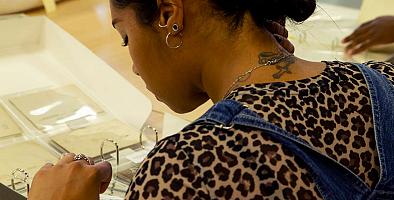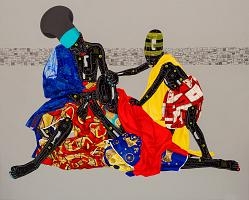Course information
Department
Length
1 year full-time or 2 years part-time
Course overview
How we live with difference is the key issue of our time. Issues relating to race and ethnicity, whether immigration, Islamophobia, #blacklivesmatter, or media diversity, are at the forefront of public debate. The MA Race, Media and Social Justice will equip you with critical and theoretical tools to unpack and deepen your understanding of contemporary debates on race, ethnicity and racism.
Why study MA Race, Media and Social Justice at Goldsmiths
- Goldsmiths is a centre of pioneering critical race scholarship and you will be taught by leading figures in the field.
- You’ll examine a range of different theoretical and philosophical approaches to race and ethnicity, including postcolonial and critical race theories, poststructuralist approaches, and theories of intersectionality.
- The degree is underpinned by a focus on the cultural industries and you’ll learn to apply these theories to understand why representations of race and ethnicity take the shape that they do in news, film and social media.
- You’ll expand your practical and academic knowledge of diversity in the media and other sectors through a series of industry talks from Black, Asian and minority ethnic (BAME) practitioners working in the industry.
- This MA is taught across two departments – Media, Communications and Cultural Studies and Sociology – that are recognised as world-leading in their respective disciplines.
- As a postgraduate student you will join a thriving intellectual community at Goldsmiths, while learning the skills that you will be able to apply to a range of careers, from media, to policy, to charity/NGOs and other forms of social enterprise.
- The Department of Media, Communications and Cultural Studies has been ranked 2nd in the UK for 'world-leading or internationally excellent' research (Research Excellence Framework, 2021) and 16th in the world (3rd in the UK) in the 2024 QS World Rankings for communication and media studies.
Contact the department
If you have specific questions about the degree, contact Akanksha Mehta or Brett St Louis.





